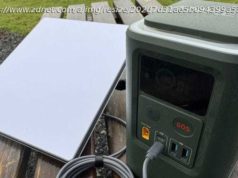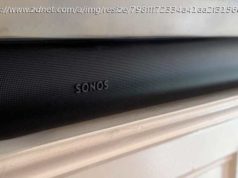Vocus will expand its North West Cable System by 60km to connect Darwin with the Tiwi Islands under a deal with the Northern Territory government.
Vocus has announced that it will be working with the Northern Territory government to construct a subsea cable connecting Darwin with the Tiwi Islands north of Australia, due to be completed by the end of 2019.
The 60km Tiwi Islands connection will come via a branching unit off Vocus’ $139 million 2,100km fibre-optic North West Cable System (NWCS), which went live in September 2016.
According to new CEO Kevin Russell, the submarine cable — which Vocus will build, own, and operate — is in addition to Vocus’ «substantial network infrastructure investment» in the Northern Territory.
«The new fibre optic link provides an historic opportunity to replace the existing sub-optimal microwave link to the mainland, removing capacity constraints and improving telecommunication services to the Tiwi Islands,» Russell said on Monday.
«Poor weather causes significant interruptions to microwave telecommunication links, and the tropical conditions in the Tiwi Islands frequently mean that essential services that rely on connectivity cannot be delivered.»
The Tiwi Islands connection will utilise Vocus’ existing subsea cable landing station at Mindil Beach, Darwin, and an existing facility at Wurrumiyanga on Bathurst Island as the islands’ cable landing station.
Vocus has signed Alcatel Submarine Networks (ASN) and Fugro, with the survey, manufacture, and deployment of the cable to take around nine months once technical specifications are complete.
Vocus was similarly awarded a AU$137 million contract in June by the Australian government to construct the Coral Sea Cable between Australia, Papua New Guinea, and the Solomon Islands.
«We have also made significant progress in this last year towards the implementation of a single advanced core network,» Vocus said last week.
«This, together with the ongoing consolidation and decommissioning of legacy assets, the capacity upgrades to our network and the improved capital expenditure disciplines and controls we have implemented, will all deliver ongoing benefits into the future.»
The Coral Sea Cable System is expected to be complete by the end of next year, with the telco also set to build out a domestic submarine cable network in the Solomon Islands to link Auki in Malaita Province, Noro in Western Province, and Taro in Choiseul Province with the Honiara landing point, which will be jointly funded by Australia and the Solomon Islands.
Australia’s former Prime Minister Malcolm Turnbull had in April confirmed the subsea cable would be built, saying that the federal government would provide the «majority» of the funding for the project, which will also land in Port Moresby.
Vocus last week also switched on its $170 million Australia-Singapore Cable (ASC), with the telecommunications submarine cable system to be ready for service as of September 14.
Vocus had a year ago confirmed that the 4,600km ASC would be completed ahead of schedule, after signing ASN in December 2016 to help build the system, which is designed to carry 40Tbps at a minimum across four fibre pairs.
The ASC was originally a 50-50 joint-venture deal between Vocus and Nextgen Networks. Vocus subsequently purchased Nextgen Networks for AU$700 million in June 2016, paying an additional AU$27 million for the ASC and AU$134 million for the NWCS.
Vocus last month reported total group revenue up 2 percent to AU$1.9 billion for FY18, with underlying net profit down 17 percent to AU$127 million while statutory net profit was AU$61 million.
Underlying earnings before interest, tax, depreciation, and amortisation (EBITDA) were stagnant, at AU$366 million, while statutory EBITDA was AU$360 million, up 7 percent.






